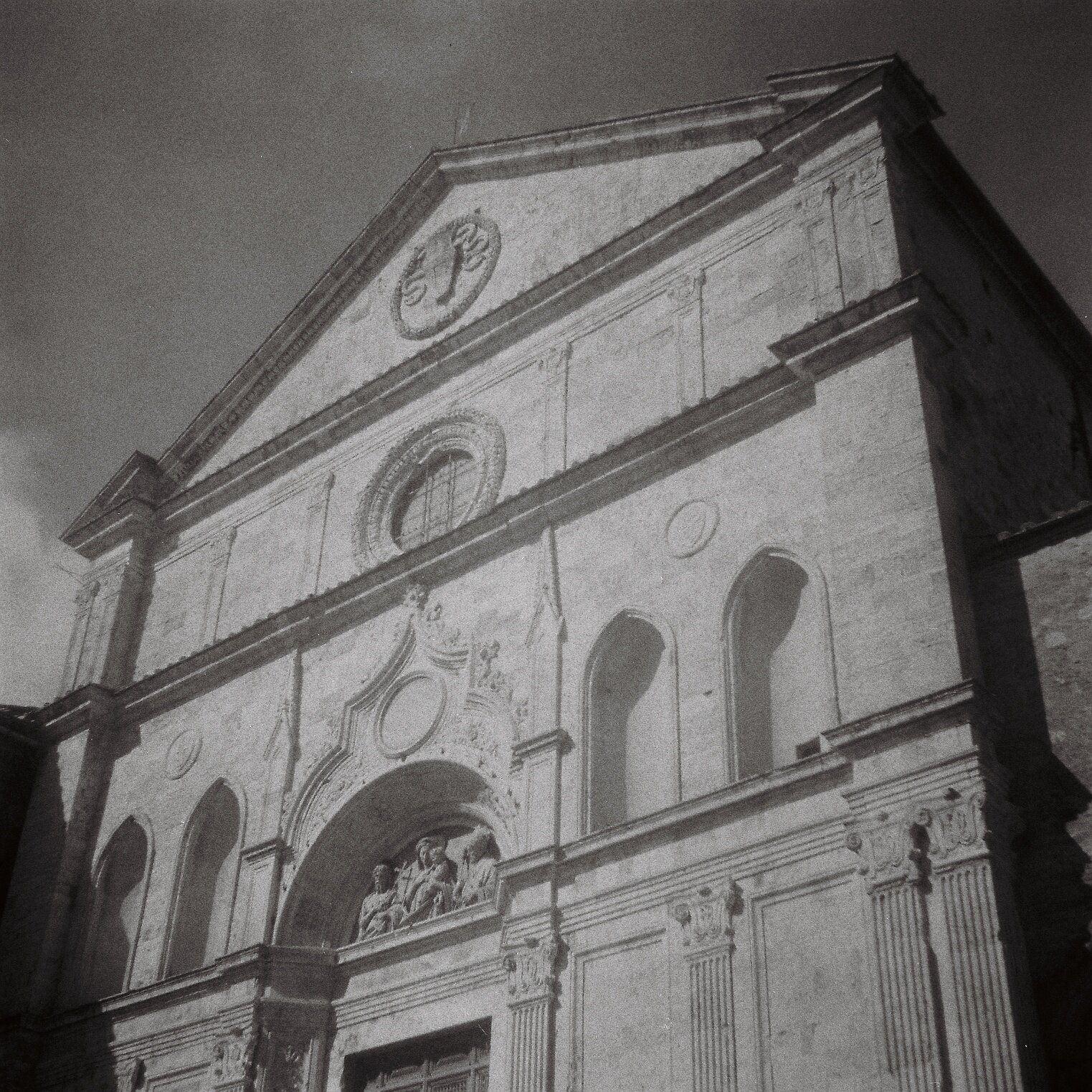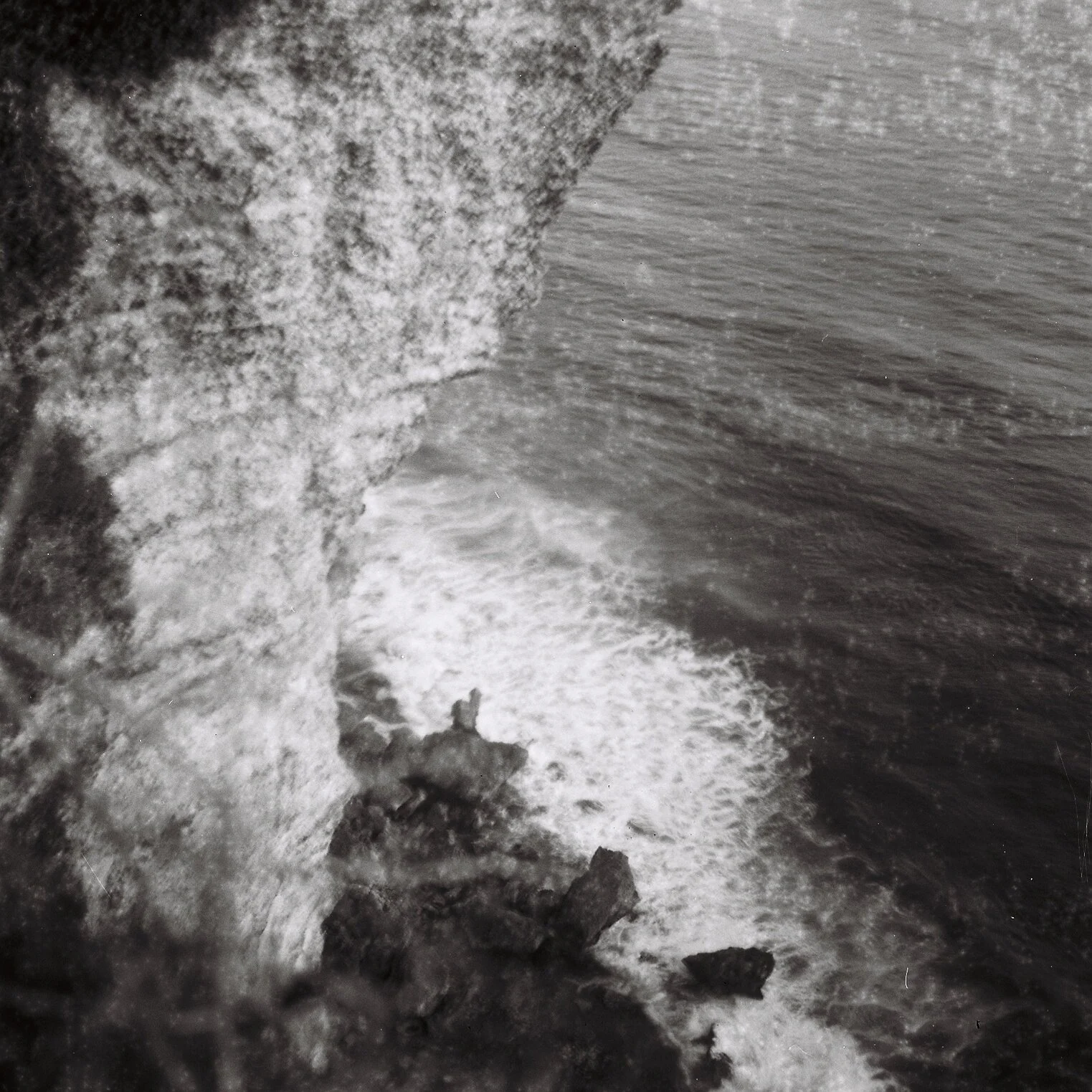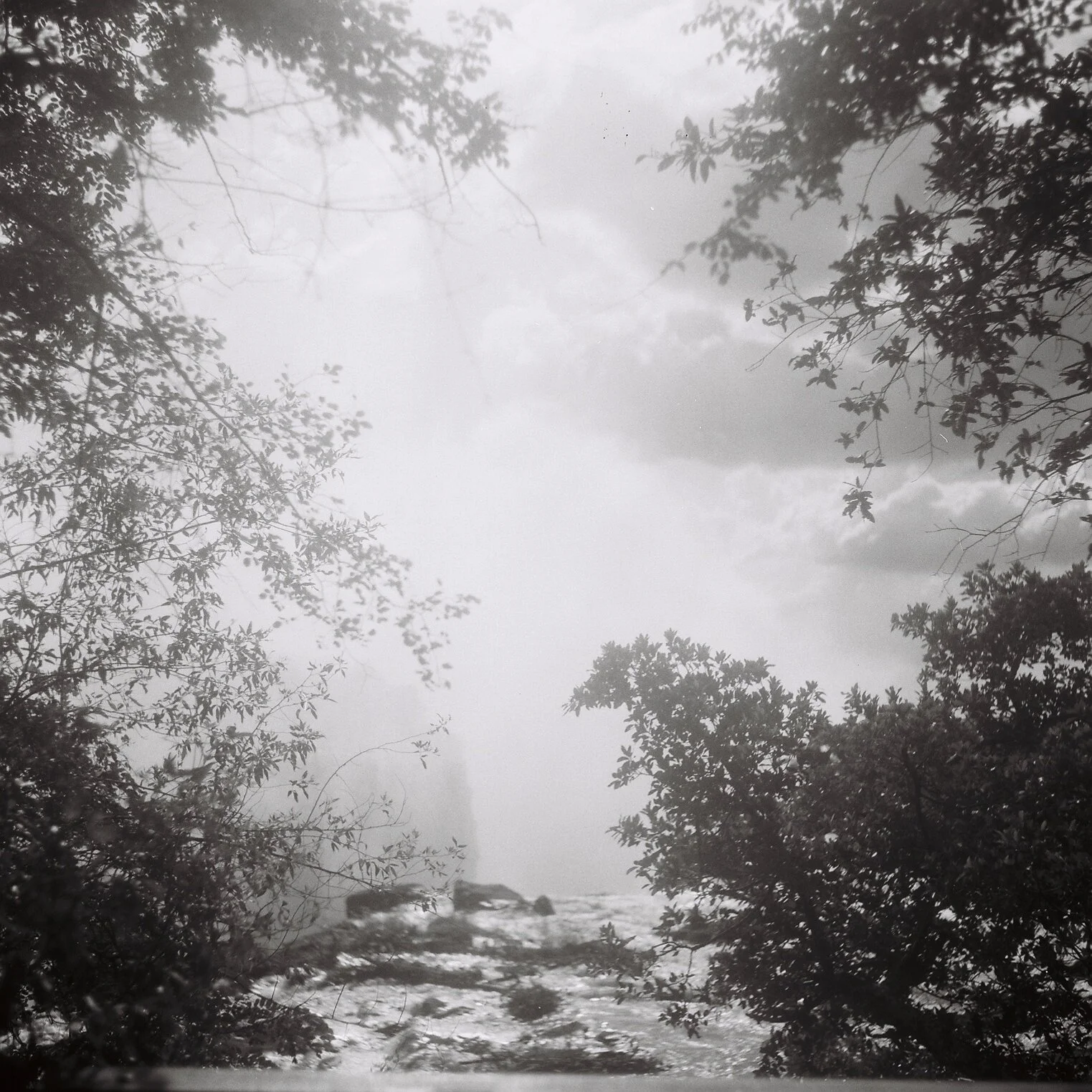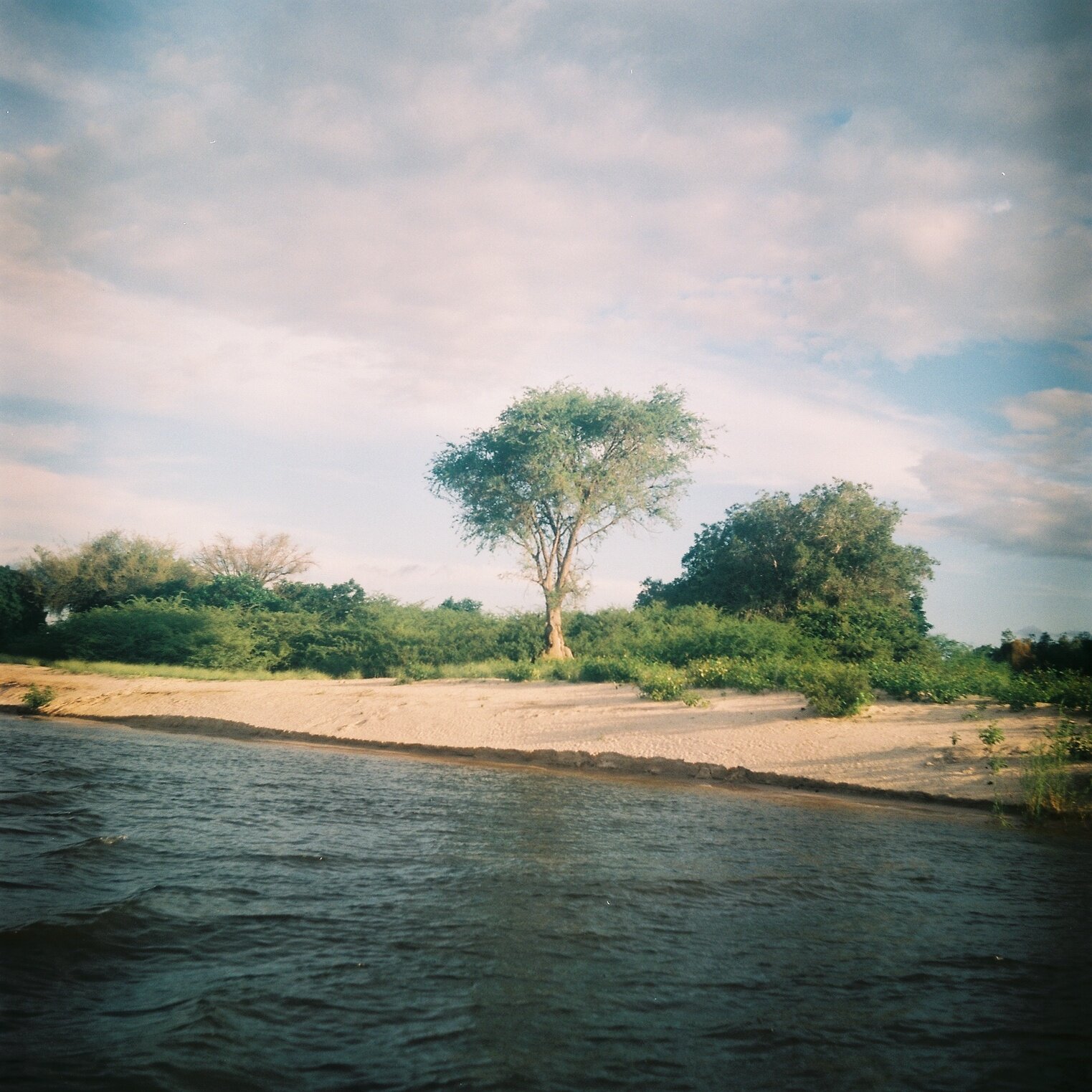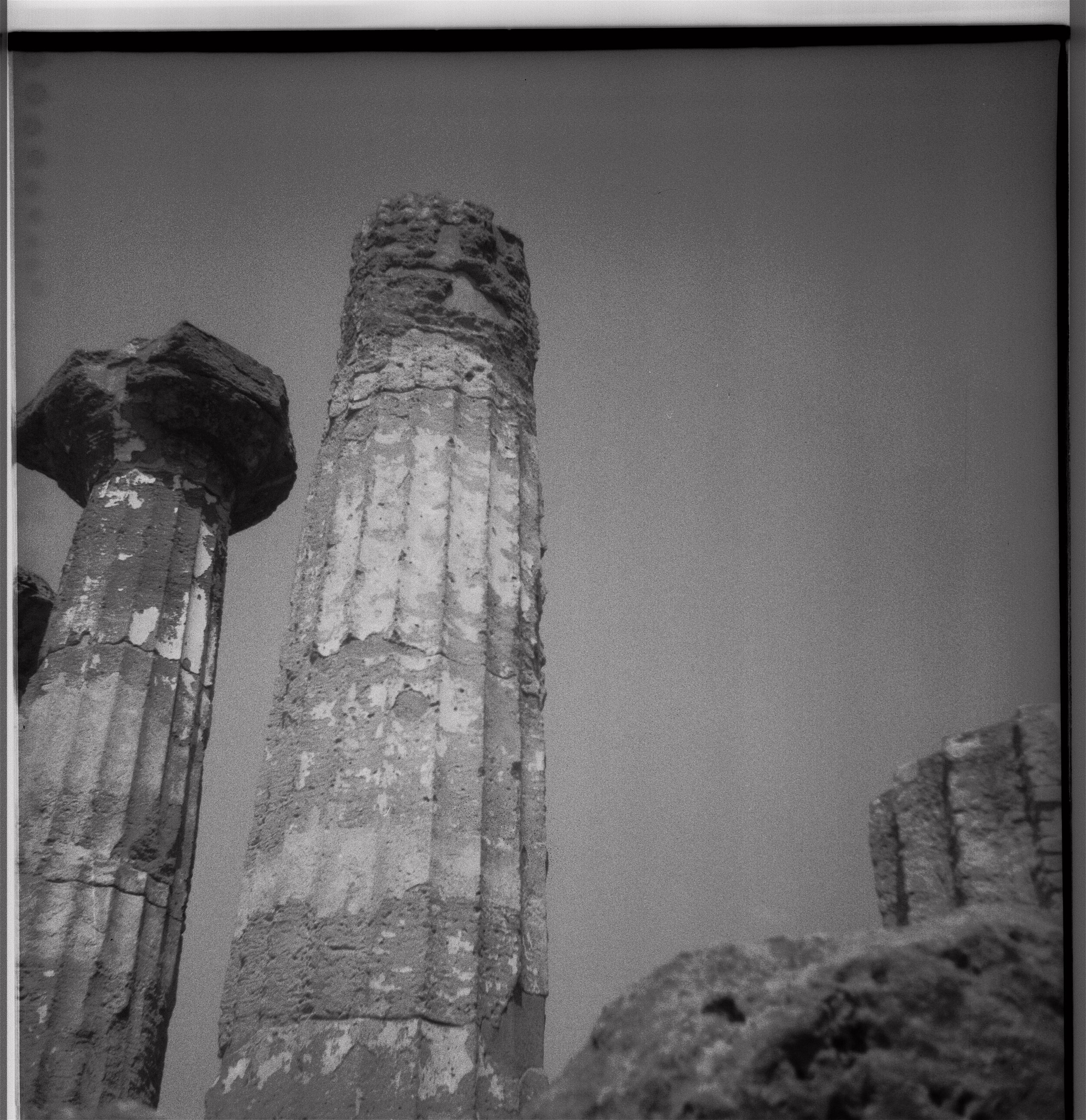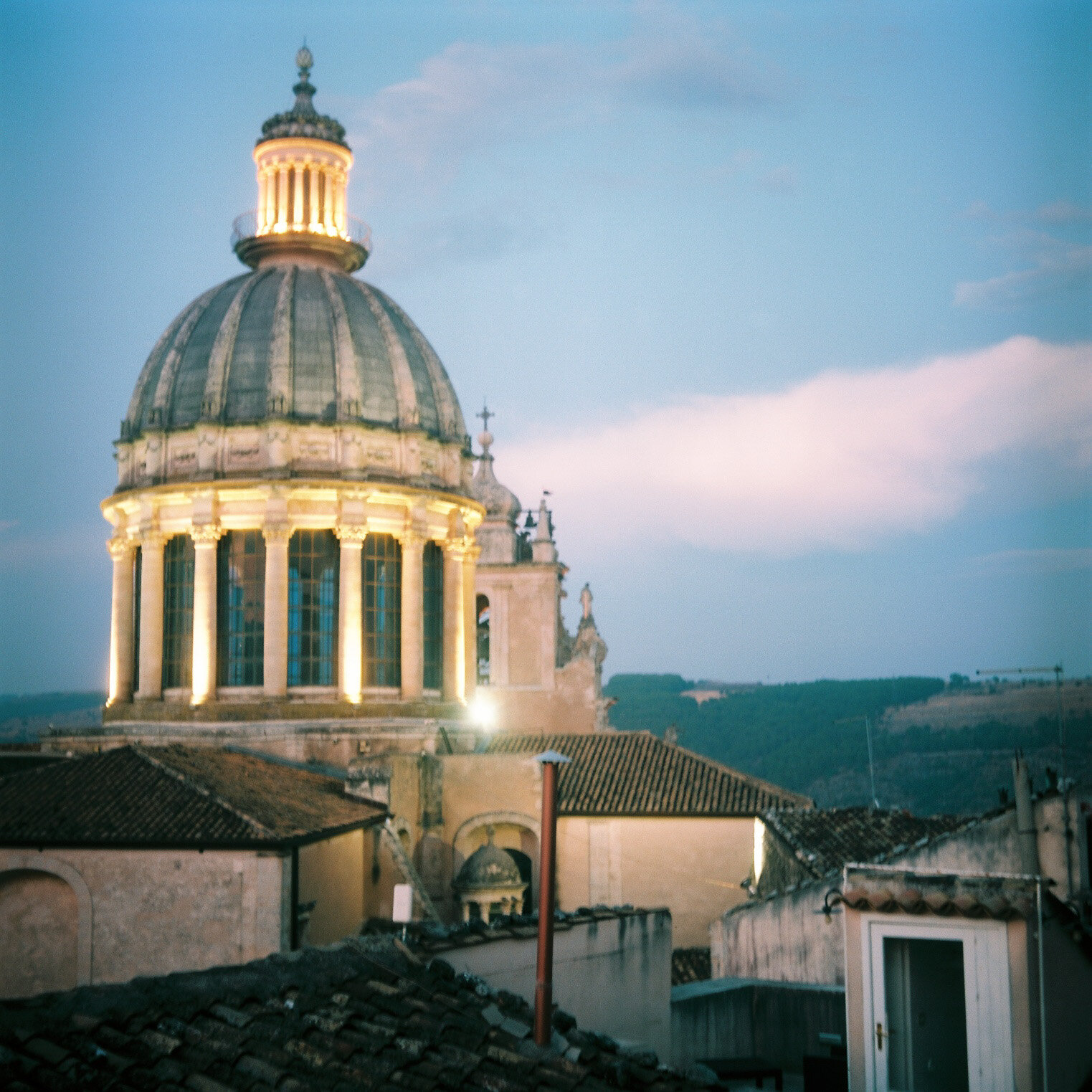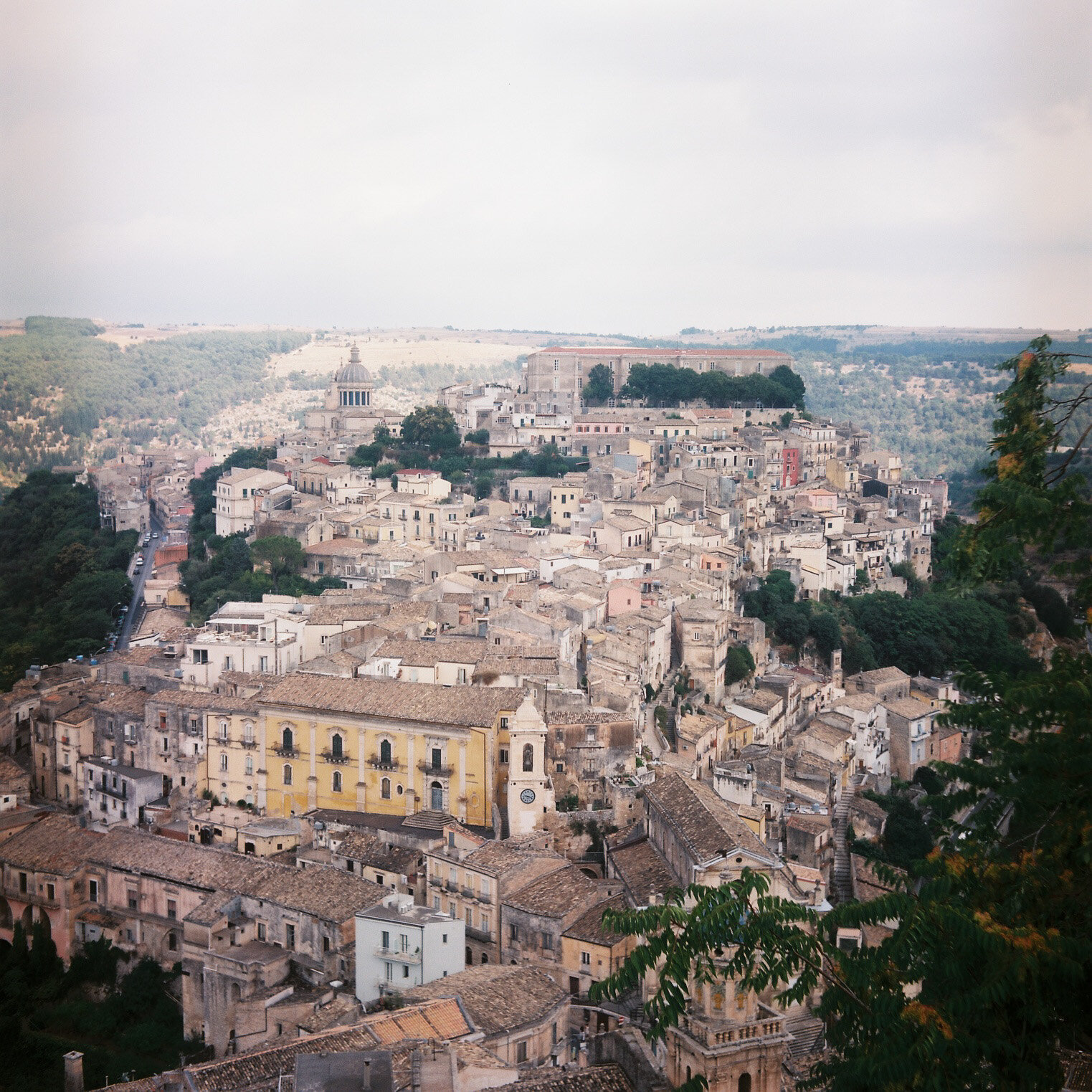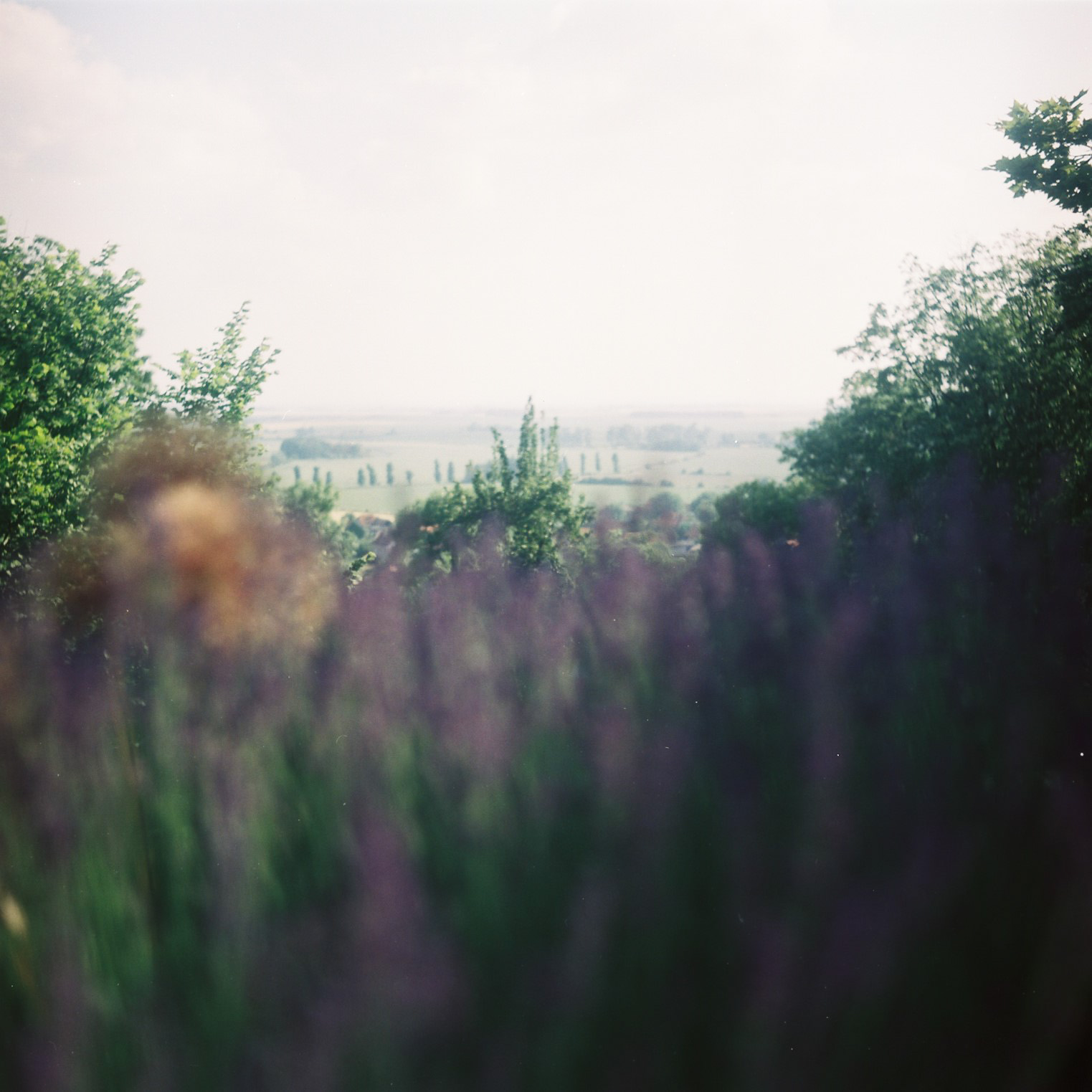Film photographs from Europe
“The idea is there locked inside. All you have to do is to remove the excess stone.” Michelangelo
Reverie of artist..
..the dawn mist glowing, the water flowing, endless river, forever and ever.
When dark meets light | film photography from Bali, Thailand and Africa
..when the night meets with dawn, dark with light, ignorance with love..and the plant deep from its roots grows and the flower blooms, and they touch again each other and understand.
Letters to a young poet
Read as little as possible..
..in the way of aesthetics and criticism - it will either be partisan views, fossilised and made meaningless in its lifeless rigidity, or it will be neat wordplay, where one opinion will triumph one day and the opposite the next. Works of art are infinitely solitary and nothing is less likely to reach them than criticism. Only love can grasp them and hold them and do them justice. With regard to any such disquisition, review or introduction, trust yourself and your instincts; even if you go wrong in your judgement, the natural growth of your inner life will gradually, over time, lead you to other insights. Allow your verdicts their own quiet untroubled development which like all progress must come from deep within and cannot be forced or accelerated. Everything must be carried to term before it is born. To let every impression and the germ of every feeling come to completion inside, in the dark, in the unsayable, the unconscious, in what is unattainable to ones own intellect, and to wait with deep humility and patience for the hour when a new clarity is delivered: that alone is to live as an artist, in the understanding and in ones creative work. These things cannot be measured by time, a year has no meaning, and ten years are nothing. To be an artist means: not to calculate and count; to grow and ripen like a tree which does not hurry the flow of its sap and stands at ease in the spring games without fearing that no summer may follow. It will come. But it comes only to those who are patient, who are simply there in their vast, quiet tranquility, as if eternity lay before them. It is a lesson I learn every day amid hardships I am thankful for: patience is all..
Rainer Maria Rilke, Letters To a Young Poet
Simplest, yet the greatest
Simplest, yet the greatest..
In this torn desert world there is no love because pleasure and desire play the greatest roles, yet without love your daily life has no meaning. And you cannot have love if there is no beauty. Beauty is not something you see—not a beautiful tree, a beautiful picture, a beautiful building, or a beautiful woman. There is beauty only when your heart and mind know what love is. Without love and that sense of beauty there is no virtue, and you know very well that, do what you will—improve society, feed the poor—you will only be creating more mischief, for without love there is only ugliness and poverty in your own heart and mind. But when there is love and beauty, whatever you do is right, whatever you do is in order. If you know how to love, then you can do what you like because it will solve all other problems. So we reach the point: Can the mind come upon love without discipline, without thought, without enforcement, without any book, any teacher or leader—come upon it as one comes upon a lovely sunset? It seems to me that one thing is absolutely necessary and that is passion without motive—passion that is not the result of some commitment or attachment, passion that is not lust. A man who does not know what passion is will never know love because love can come into being only when there is total self-abandonment. A mind that is seeking is not a passionate mind and to come upon love without seeking it is the only way to find it—to come upon it unknowingly and not as the result of any effort or experience. Such a love, you will find, is not of time; such a love is both personal and impersonal, is both the one and the many. Like a flower that has perfume, you can smell it or pass it by. That flower is for everybody and for the one who takes trouble to breathe it deeply and look at it with delight. Whether one is very near in the garden or very far away, it is the same to the flower because it is full of that perfume and, therefore, it is sharing with everybody. Love is something that is new, fresh, alive. It has no yesterday and no tomorrow. It is beyond the turmoil of thought. It is only the innocent mind which knows what love is, and the innocent mind can live in the world, which is not innocent. To find this extraordinary thing which man has sought endlessly through sacrifice, through worship, through relationship, through sex, through every form of pleasure and pain, is only possible when thought comes to understand itself and comes naturally to an end. Then love has no opposite, then love has no conflict.
Sicilian poem on film
So we are asking, is freedom - not from something - is it love? And is love a reaction? That is, I see a beautiful woman or a man, or a marvellous statue - I'd love to have it, I'd love to have it in my room, look at it day after day, and each time I look at it, it is different, that's a great masterpiece. And for most of us love perhaps may not exist. Please, I am just asking this, I am not saying it does not exist. For most of us perhaps we don't know what it is. We know attraction, we know tenderness, we know pity, we know guilt, remorse and jealousy. The crows are making an awful lot of noise - I am sorry. Is all that love? Do you understand my question? If it is not love, then love has no reaction. Then that is freedom, which is not born out of a reaction. You may be a Christian, and being intellectual you might become a Buddhist. You have chosen, you are free to become a Buddhist, because Buddhism is much more intellectually active, interesting, it has got great depth and all the rest of it. And you are free from one and trapped in the other. And you may love the Buddha, rejecting your own particular deity. And this is called freedom. The crows are free! (Laughter) This is very important to understand, not intellectually, not verbally, but the depth and the beauty of it.
And we also should ask when we are talking about the art of living, what is beauty. The great architecture, the cathedrals of Europe, the great temples and the mosques of the world, constructed with great architects, the great painters, the great sculptors - Michelangelo - ah! When you see all that, that's beautiful. So is beauty manmade? Please exercise your brains to find out. A tiger is not manmade. Thank the lord! A tree in a field alone, solitary, with all the dignity of a marvellous old tree - that's not manmade. But the moment you paint that tree it's manmade, and you admire, go to a museum to see that tree painted by a great artist. So in our life, which is part of the art of living, is to understand the depth and the beauty of freedom, and the goodness of it. And beauty - not the picture, the poem, the marvellous writer - but what is beauty? A beautiful man, a beautiful woman, a face that has depth. And without that aesthetic quality in life, which is born of sensitivity, which is born out of all the senses in action, not one particular, or two, or three senses, but the whole movement of the senses. Surely beauty is when the self is not. When I am not, beauty is. When the self is not, love is. And so love, freedom, goodness, beauty, are one. Not something separate, not something pursued, one pursues what is beauty and spends the rest of your life on that. But they are all interrelated. Goodness, that word, though it is very old fashioned, that very word has an extraordinary depth to that word. To feel the depth of goodness, and that can only be when there is freedom, when there is love, beauty.
Jiddu Krishnamurti
On beauty..
There is still another aspect under which the beauty of the world may be viewed, namely, as it becomes an object of the intellect. Beside the relation of things to virtue, they have a relation to thought. The intellect searches out the absolute order of things as they stand in the mind of God, and without the colors of affection. The intellectual and the active powers seem to succeed each other, and the exclusive activity of the one generates the exclusive activity of the other. There is something unfriendly in each to the other, but they are like the alternate periods of feeding and working in animals; each prepares and will be followed by the other. Therefore does beauty, which, in relation to actions, as we have seen, comes unsought, and comes because it is unsought, remain for the apprehension and pursuit of the intellect; and then again, in its turn, of the active power. Nothing divine dies. All good is eternally reproductive. The beauty of nature reforms itself in the mind, and not for barren contemplation, but for new creation. All men are in some degree impressed by the face of the world; some men even to delight. This love of beauty is Taste. Others have the same love in such excess, that, not content with admiring, they seek to embody it in new forms. The creation of beauty is Art. The production of a work of art throws a light upon the mystery of humanity. A work of art is an abstract or epitome of the world. It is the result or expression of nature, in miniature. For, although the works of nature are innumerable and all different, the result or the expression of them all is similar and single. Nature is a sea of forms radically alike and even unique. A leaf, a sun-beam, a landscape, the ocean, make an analogous impression on the mind. What is common to them all,—that perfectness and harmony, is beauty. The standard of beauty is the entire circuit of natural forms,—the totality of nature; which the Italians expressed by defining beauty "il piu nell' uno." Nothing is quite beautiful alone: nothing but is beautiful in the whole. A single object is only so far beautiful as it suggests this universal grace. The poet, the painter, the sculptor, the musician, the architect, seek each to concentrate this radiance of the world on one point, and each in his several work to satisfy the love of beauty which stimulates him to produce. Thus is Art, a nature passed through the alembic of man. Thus in art, does nature work through the will of a man filled with the beauty of her first works. The world thus exists to the soul to satisfy the desire of beauty. This element I call an ultimate end. No reason can be asked or given why the soul seeks beauty. Beauty, in its largest and profoundest sense, is one expression for the universe. God is the all-fair. Truth, and goodness, and beauty, are but different faces of the same All. But beauty in nature is not ultimate. It is the herald of inward and eternal beauty, and is not alone a solid and satisfactory good. It must stand as a part, and not as yet the last or highest expression of the final cause of Nature.
Ralph Waldo Emerson, Nature
Silence..
The only silence we know is the silence when noise stops, the silence when thought stops - but that is not silence. Silence is something entirely different, like beauty, like love. And this silence is not the product of a quiet mind, it is not the product of the brain cells which have understood the whole structure and say, `For God's sake be quiet; then the brain cells themselves produce the silence and that is not silence. Nor is silence the outcome of attention in which the observer is the observed; then there is no friction, but that is not silence. You are waiting for me to describe what this silence is so that you can compare it, interpret it, carry it away and bury it. It cannot be described. What can be described is the known, and the freedom from the known can come into being only when there is a dying every day to the known, to the hurts, the flatteries, to all the images you have made, to all your experiences - dying every day so that the brain cells themselves become fresh, young, innocent. But that innocency, that freshness, that quality of tenderness and gentleness, does not produce love; it is not the quality of beauty or silence. That silence which is not the silence of the ending of noise is only a small beginning. It is like going through a small hole to an enormous, wide, expansive ocean, to an immeasurable, timeless state. But this you cannot understand verbally unless you have understood the whole structure of consciousness and the meaning of pleasure, sorrow and despair, and the brain cells themselves have become quiet. Then perhaps you may come upon that mystery which nobody can reveal to you and nothing can destroy. A living mind is a still mind, a living mind is a mind that has no centre and therefore no space and time. Such a mind is limitless and that is the only truth, that is the only reality.
Jiddu Krishnamurti
Unseen
..truth is a pathless land
Eternal movement
Meditation is not a search, it's not a seeking, a probing, an exploration. It is an explosion and discovery. It's not the taming of the brain to conform nor is it a self-introspective analysis, it is certainly not the training in concentration which includes, chooses and denies. It's something that comes naturally, when all positive and negative assertions and accomplishments have been understood and drop away easily. It is the total emptiness of the brain. It's the emptiness that is essential, not what's in the emptiness, there is seeing only from emptiness, all virtue, not social morality and respectability, springs from it. It's out of this emptiness love comes, otherwise it's not love. Foundation of righteousness is in this emptiness. It's the end and beginning of all things.
These magical works on photography are created with Flexaret camera on Kodak film, Portra 160, 120mm.





















